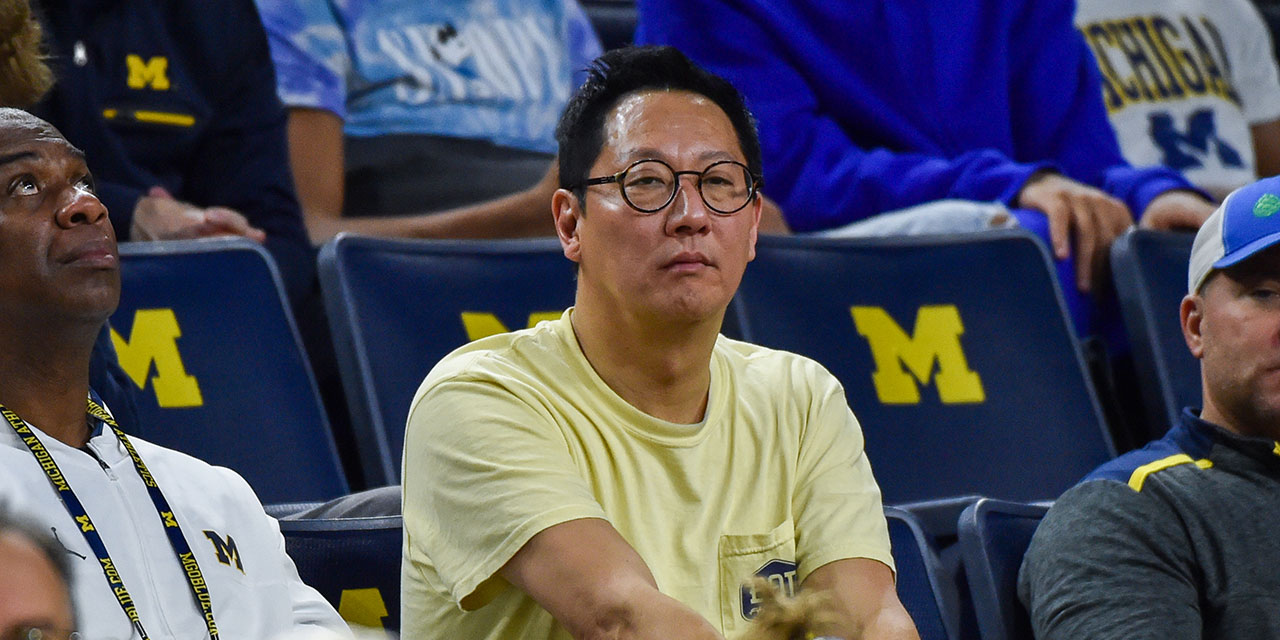
My phone and inbox lit up last Tuesday afternoon with questions about the Board of Governors’ decision not to confirm Santa Ono as president of the University of Florida. I said good might come of it—if it signals that Florida is serious about a new kind of diversity: one of leadership and ideas.
As a critic of the metrics-dominated public university monoculture, I hope Ono’s rejection signals that the party may be over for what I’ve called the higher-ed nomenklatura—the small, insular circle of leaders rotating from campus to campus, presidency to presidency, driving the sector toward homogeneity. Ono has been a key figure in this ecosystem, serving on the boards of the American Council on Education, the Association of Public and Land-grant Universities, and the American Association of Colleges and Universities. This group operates under the false premise of scarcity, when in fact there is an abundance of highly qualified Ph.D.s who could bring fresh leadership to public universities.
Finally, a reason to check your email.
Sign up for our free newsletter today.
I’ve long raised concerns about the effects of this mindset: the centralization of power on public university campuses, the erosion of faculty governance, the sidelining of senior and politically moderate faculty, the dominance of rubrics and metrics that value measurement of learning over learning itself, the identical undergraduate student success dashboards, and the statewide transfer agreements that tell students, “Take your first two years anywhere—it doesn’t matter” (read: “the quality and experience of your professors don’t really matter”). Among other consequences, the push for institutional homogeneity leaves colleges ill-equipped to face the biggest nonpolitical threat to higher education: AI.
There was reason to doubt that Ono would break from the stifling consensus. He tried to package himself as a change-agent, telling the University of Florida Board of Trustees, “I understand and support what Florida’s vision for higher education represents: a decisive move away from ideological bias and activist-driven culture that has come to define too many colleges and universities in this country and abroad.” But until recently, Ono had been a consistent voice of the higher education establishment’s monoculture—pro-DEI until it was no longer convenient.
Ono would likely have delivered more of the same in Florida. He was ready to sign a contract, for instance, that held him to state performance goals, including increasing rankings of the University of Florida and meeting “Board of Governors’ Funding Metrics, Choice Metric for the University, and Metrics Common to All State Universities, as well as the University’s Choice Metric for the University and rankings goals.” These encompass the state list of Programs of Strategic Emphasis, which don’t include any programs that fall under the recently opened Hamilton School of Classical and Civic Education, Florida’s branch of the new “civic education” centers popping up at campuses across the country. Promoting “the principles of a free society” is not, apparently, a strategic priority for the state.
Is there any clearer sign that the national obsession with scale and measurement (whether DEI goals or “workforce needs”) continues to outweigh any serious effort to raise educational standards—the fundamental problem facing universities today? While I appreciate Ilya Shapiro’s recent praise of Florida Polytechnic’s “career outcomes” rankings and the appeal of “affordability over tradition,” I know that he also recognizes that a grounding in history, ethics, and philosophy—a traditional, classical liberal education, in other words—will be increasingly essential in the AI era, even if its national payoff may not be measurable for years.
So while Florida struck a blow for institutional diversity by rejecting Ono, I wonder whether we will see real diversity, or simply a deluge of transfer-ready, state-mandated civics and U.S. Constitution courses duct-taped to the same old “metrics” monoculture. Will Florida create a market for new ideas and new thinking, or continue the risk aversion that has characterized public higher ed for the past decade?
If real intellectual vibrancy is to thrive, Florida must ensure a climate free from conformity and fear. AI will undoubtedly reshape higher education in the years ahead—but perhaps it will also prompt American universities to become more distinct from one another, speaking in varied and competing voices, not just one.
Photo by Aaron J. Thornton/Getty Images
City Journal is a publication of the Manhattan Institute for Policy Research (MI), a leading free-market think tank. Are you interested in supporting the magazine? As a 501(c)(3) nonprofit, donations in support of MI and City Journal are fully tax-deductible as provided by law (EIN #13-2912529).
Source link

















